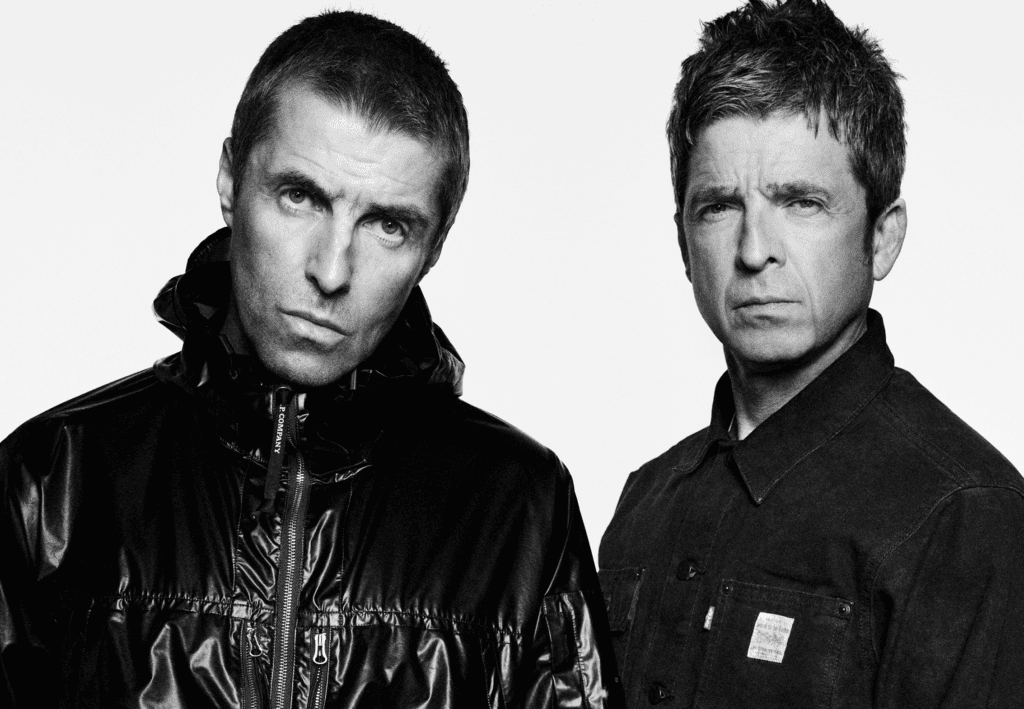Subjectivity is obviously a huge factor in regard to music. What one person could find utterly repugnant, another could find fantastic, for either the exact same, or indeed polar opposite reasons. “One man’s gold…” etcetera. That said, despite this, there does seem to be that elite group of albums that are nearly universally agreed to be legendary, trancedary works, often regardless of people’s subjective opinions, think the ‘Abbey Road’s or ‘What’s Going On?’s of the world. Thing is though, if we as music listeners were for some reason duty bound to only listen to albums that were objectively 8+ out of 10, for sure we’d get some pretty amazing music (duh), but it also would be obviously quite restrictive, and dare I say boring in places.

For one, as I said earlier, what one may see as irredeemable rubbish, another may lord as the most significant piece of art in their lives, so it would be a bit of a bummer if we lost that to the diktat of the pretentious fart sniffers of the music journalism world. Also though, I think there is another very interesting phenomenon in the music, and indeed media world at large, that warrants discussion. As well as subjectivity, there are sometimes those occurrences where a reader/watcher/listener is fully reticent of a product’s objective flaws, maybe to the point it impacts their own enjoyment, and yet, regardless, they love it anyway.
Perhaps it’s due to nostalgia or sentimentality, perhaps the cons outweigh the pros in their significance, or maybe it’s simply because its “naffness” is part of the enjoyment. Whatever the case, I still find it interesting. So join me, as I rattle off a list of examples I’ve come across in my own life of albums I have a real soft spot for, in spite of their perceived drawbacks… (To clarify, this obviously won’t just be an article of “albums that aren’t 10/10”, because we’d be here all day, but more that these albums display problems that I’ve been known to criticise other albums for, but for personal reasons maybe don’t weigh as heavy).
Captain Beefheart and his Magic Band – Trout Mask Replica (1969)
I couldn’t have an article of this nature and not include this. Perhaps the most infamous “so bad it’s good” album ever, this album was unleashed on an unsuspecting America at the height of flower power, and it says something that even now people struggle to make heads or tails of it, including me. For sure, the fact that they rehearsed these songs for months in order for them to sound as deliberately discombobulated as they do is incredibly impressive, as is the unwavering will for experimentation it presents throughout it’s nearly 30 tracks, but that doesn’t mean all of them are good.
My least favourite moments are probably those that, simply by nature of their structure or sound, appear the most nonessential, whether it’s the three spoken word tracks, the lofi comedy blues on ‘China Pig’, or the discordant guitar duet ‘Dali’s Car.’ While these tracks may have a palpable humour to them or an interesting melody here or there, but realistically, they could probably be taken off and you wouldn’t miss much. Others have said similar things about the two part instrumental ‘Hair Pie’, and I am inclined to agree slightly, but they do admittedly have a sense of unbridled craziness and fast paced mania to them that I find very entertaining.
Another common critique levelled at this album is its problem with pacing, and this I can speak to. Due to the highly experimental nature of this album, the fact that it nearly runs as long as ‘The Spongebob Squarepants Movie’ I imagine makes it difficult even for hardened listeners to get through in one go. I speak from experience when I say the lack of structure or respite, combined with the expansive tracklist can start to send you mad after a bit.
As a result of this, it also means unfortunately that, the further you get into the album, the more the milder tracks tend to fade into the background a little, examples including ‘Sweet Sweet Bulbs’, ‘Fallin’ Ditch’, ‘Sugar N’ Spikes’, Steal Softly Thru Snow’, and even ‘Old Fart At Play’, despite it’s endearing fairytale lyrics. Add to that that I just personally find a few of the tracks like ‘Pena’ or ‘Ella Guru’ more irritating than commendable, and it’s certainly not flawless.
All that being said though, I promise you, if you give this album a chance, and really stick with it, you will be seriously rewarded. It’s no surprise that the band are absolutely on top form, albeit while sounding completely mad in the process, and the results are often glorious. Take the opener ‘Frownland’, a perfect condensation of everything you’ll be hearing over the next 80 minutes, with wiry duelling guitars and skittering drums, or the delightfully bouncy and care free ‘Pachuco Cadaver’, the darkly lolloping ‘Dachau Blues’ or the wonderfully raucous ‘Moonlight on Vermont’, and that’s just the first quarter.
Elsewhere you’ll be treated to oddly danceable cuts like ‘Human Gets Me Blues’ or ‘When Big Joan Sets Up’, pure doses of discordant, noisy chaos like ‘Neon Meat Dream Of A Octafish’, soulful, dare I say funky excursions like ‘Wild Life’ or Ant Man Bee’, or even an impromptu appearance from The Mothers of Invention on ‘mousetrapreplica.’
Incidentally, there are also a few of the aforementioned milder tracks that still manage to make an impression, like the jovial and upbeat riffs on ‘She’s Too Much For My Mirror’, or the rocking intro transitioning to a beautifully serene outro on the closer, making for a great bookend. Safe to say the album has plenty of musical variety, and is all the better for it.
Then there’s Beefheart himself, who is absolutely the cherry atop this sundae of insanity. Rather than your standard crooning 60s frontman, Beefheart instead takes the opportunity to yelp, holler, recite, narrate, and cartoonishly half-sing his way through the album at his leisure, meaning that as much as he might sound like an absolute madman, it completely makes sense given the accompaniment, appearing almost as a kind of animated storybook narrator on a bad drug trip.
Much the same could be said for the lyrics, in which respect Beefheart opines on any number of topics that come to his head in the most dadaist way conceivable, no matter how whacked out. Holocaust victims, mystical hippie women and hobos are just three of his seemingly endless list of subject matters, and the rest are just as varied, disparate, and odd including trailblazing explorations of transgenderism, religion and tales of mountain dwelling hermits, occasionally interspersed with linguistic gobbledygook and absurdist ad-hoc comedy sketches.
As if that weren’t enough, Beefheart also sees fit to add his own musical sprinkle to proceedings, either by wailing away on a saxophone, randomly jangling jingle bells around, or trying to play a saxophone and bass clarinet at the same time, with appropriately “original” results, seemingly just because he can. I think in a way that explains the appeal of this album. “Why did you write your songs like that?” “Because we did.” “Why are you singing like that?” “Because I wanted to.” “These lyrics don’t make any sense.” “Does it matter?” Absolutely boundaries are helpful, but as Captain Beefheart and Co. show us, sometimes it’s fun to throw rules out the window.
Napalm Death – Scum (1987)
For a brief time as a kid, I had a fascination with world records. Biggest this, tallest that, longest whatever, you get the idea. So it was only natural that I eventually wondered what the shortest song was. Of course it was Napalm Death’s 1.316 second masterpiece ‘You Suffer’ from their album ‘Scum’.
So, I went to put it on, played it, laughed a fair bit, as you would, but then I forgot that I left the album running, and on came the next song, ‘Life?’ Fair to say my 8-year-old mind was blown, my ears just having been exposed to extreme music for the very first time, but I didn’t really know what to make of it other than slack jawed amazement.
That said though, after coming back to it years later, I completely fell in love with the album and its follow up, and it decidedly became one of my favourites of all time. Although given its sweeping characteristics, if you know me, that may come as a surprise. Granted, due to the nature of this album I probably won’t be able to talk about it in nearly as much detail as others, but hopefully I can still make my case.
Firstly, I’ve lambasted my fair share of albums for having tracklists that are just unreasonably long, hell, I did it with the last album I talked about. This tends to be the case more with rap albums, where song numbers have been known to reach the low-mid 20s. So you’d think the fact this album has 28 songs on would be a major turn-off. As it happens, no.
Secondly, albums that are seemingly quite one dimensional have often received my ire. After all, who would want to listen to ostensibly the same song 14 times? In the case of this album, this is grindcore we’re talking about, so there’s hardly a lot of room for musical variation. Am I bored by it? Not really no.
Finally, the production, reportedly costing less than £250, obviously you’re not getting Steve Albini for those prices, and safe to say, its sound suits its budget. Still though, despite my annoyance about potentially great albums being ruined by sounding like they were recorded with a sock, this album still maintains that “great” label in spite of it.
So you might ask, “why?” Why let this album off, but trash all the other ones? Well, this might not be an entirely satisfactory answer, but the album just has this guttural feeling of pure, raw, nihilistic energy about it that just is absolutely flooring, precisely what makes it so great. Yes, it may not be varied, or polished, and it might not need nearly thirty tracks at the end of the day, but what you do get, is half an hour of white hot, blaring, complete and utter sonic filth, delivered at breakneck speed, with absolutely insane vocals, filthy riffs, manic drums and suitably misanthropic lyrics.
I would single out a few tracks like ‘Polluted Minds’, the aforementioned ‘Life?’, ‘Pseudo Youth’ or ‘Moral Crusade’ as being particularly awesome, but for reasons already made clear, there’s not a great deal of point in that, as it’s definitely best viewed as one complete sonic package. It’s also fair to say I think, given the nature of this record’s content, that there’s an undercurrent of humour running through it that really helps. All of which results in an end product that, to put it one way, is just really really cool, so thanks 8-year-old me.
The Fall – Levitate (1997)
This is quite possibly the most controversial album in The Fall’s expansive catalogue. It resulted in the group’s bankruptcy, remained out of print for at least 15 years, and was the only Fall album DJ mega fan John Peel confessed to not liking. To be honest, I can kind of understand why. For one, the consistency is just not really there. ‘Hurricane Edward’ is an absolute mess beyond three minutes, without the strongest of ideas to start with anyway, as fun as ‘I’m a Mummy’ is, the ‘Jungle Rock’ cover is far inferior and unnecessary, as is the lo-fi rehearsal recording on ‘Tragic Days.’ Add to that, as much as the instrumental on ‘Jap Kid’ might be quite nice, we really didn’t need to hear it twice on one album, except one has words.
There is also the drawback that vocalist Mark E Smith really didn’t put his best foot forward, either sounding often bored, slightly irritating, or barely audible, a big drop off from even the last album. The second major drawback to this album is the production can absolutely suck. MES can make albums sound great, just look at ‘Sub-Lingual Tablet’, but this is not one of them.
The sound in general is a lot flatter for much of the record, but thankfully that doesn’t get in the way too much. What does is that his annoying habit of producing songs that are lofi and noisy for the sake of it is really obvious here, to the point that the span from track 9-13 particularly (oh god, ‘Ol’ Gang’) is an absolute slog, the title track in particular being massacred beyond belief.
So, how after all that, can I still call this album a personal favourite? In truth, it probably has a lot to do with the sound palette, while maybe not having aged the best, the band saw fit to experiment more with dance and jungle aesthetics here, and a number of results, perhaps against my better judgement, are very enjoyable.
‘Ten Houses of Eve’ sees a propulsive breakbeat underscore an enjoyably kooky track with an unlikely earworm. Meanwhile the atmospheric, bleepy-bloopy House-Rock of ‘Masquerade’ might be my favourite on the record for its pure infectiousness, and the slick, danceable organ rock of the closing track ends things on a high. I will say as well that the track ‘Spencer Must Die’ is maybe the most “together” song here, where a super slick, effortless rhythm section rumbles beneath glistening keys.
Some of the more experimental cuts can also be cool, take the uber-distorted, rumbling and quirky, Julia Nagle fronted ‘Quartet of Doc Shanley’, or the pure, unhinged tape-loop induced chaos on ‘4 1⁄2 Inch’ giving us the album’s decidedly most cathartic moment. Even Mark isn’t consistently bad on this album, a number of the above tracks showing he still knew how to “leave a mark” (excuse the pun), on a given track. So despite my critiques, he does still have it in him.
Does this album have problems? Absolutely. Can I see why John Peel didn’t like it? Yeah I can. Is it essential listening for new Fall fans? Probably not. That said, maybe it’s my inner jungle head, or maybe it’s my charitableness towards MES and the gang in general, but I think I’ll always have a soft spot for The Fall’s “forgotten album”, as flawed as it is.
So, there are three examples for you of albums that, while far from perfect, at least in my opinion, still have many admirable attributes, from artists all across the spectrum of rock. That said, there’s plenty more where that came from. In part 2, coming soon, I’ll be going through three more loveable messes, except there I’ll be focusing on a few legends from the dance world, and a particularly maligned metal band…






